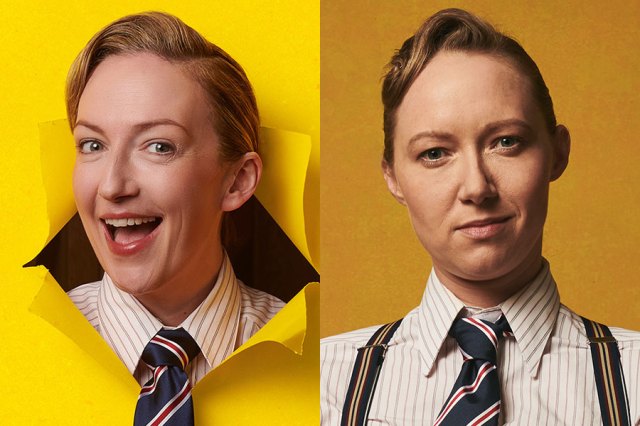Blue/Orange
Bravo Joe Penhall! His Blue/Orange, which has transferred to the West End’s Duchess Theatre following its premiere last year at the National’s Cottesloe, is a brave piece in the finest tradition of the issues play. It drops its characters into a messy moral quagmire and proceeds to pose searching questions of both them and us – and it doesn’t shy away from leaving those questions unanswered.
In a London mental hospital, the imminent release of a patient, a young black man named Christopher (Chiwetel Ejiofor), is causing a ruckus. Trainee Dr Flaherty (Andrew Lincoln – yes, it is Egg from TV’s This Life), Christopher’s attendant psychiatrist, thinks he should be re-classified as schizophrenic and detained further. His supervisor Dr Smith (Bill Nighy), who’s writing a textbook about cultural influences on the diagnosis of ethnic minorities, decides that Christopher should be released back into the community with immediate effect.
Is Christopher really mad or could he, just possibly, actually be the son of exiled African dictator, Idi Amin? Why does he perceive the oranges on the table to be coloured bright blue? Is it in his best interest to remain in hospital and receive treatment – or will this institutionalise him and make him sicker? Has his race had an impact on the doctors’ opinions? What is normal?
As the arguments and emotions unspool, the audience’s sympathies and loyalties teeter back and forth, expertly borne along by three outstanding performances. Lincoln starts off in a good light as the well-intentioned careworker, but his insecurities and vanities surface when his own career is threatened. By the end, he’s reduced to a fuming mess who looks himself in need of counselling. Nighy, meanwhile, cannily presents Dr Smith in a drawling, languid manner which thinly disguises his academic jealousy and spiteful nature.
And then there’s Ejiofor’s Christopher. His performance has won him two best newcomer awards and well-deserved they are, too. Ejiofor erupts onto the stage as the confused young man, gripped by paranoia and loneliness. In the ideological battle being fought by the two doctors, he is no more than the defenceless and bloodied prey caught in the middle.
Director Roger Michell has opted to keep the highly charged proceedings in the round. Accordingly, designer William Dudley has adapted the Duchess to re-create the Cottesloe’s intimacy. The back of the stage has been disembowelled and tiers of seating erected, with a squared-off performance space hydraulically lifted between these and the existing stalls.
The performance space is so close you can’t help but confront the powerful ethical dilemma that Penhall raises. If the answers aren’t obvious, one thing is: they sure aren’t black and white, but more like shades of blue and orange – and lots of grey.












